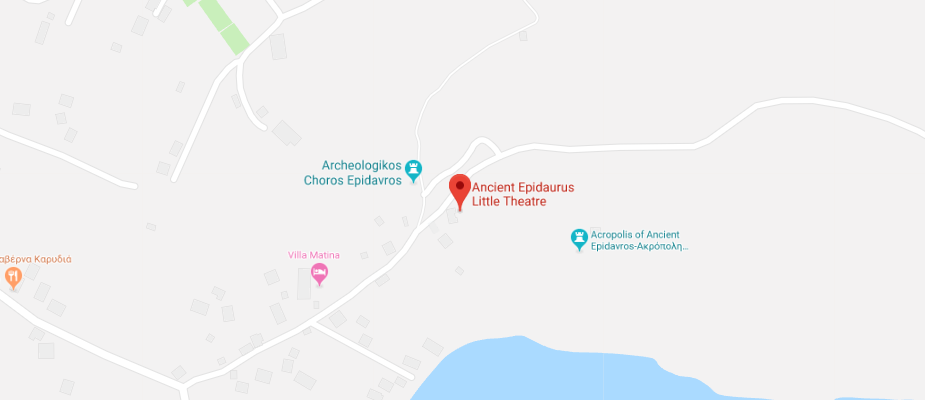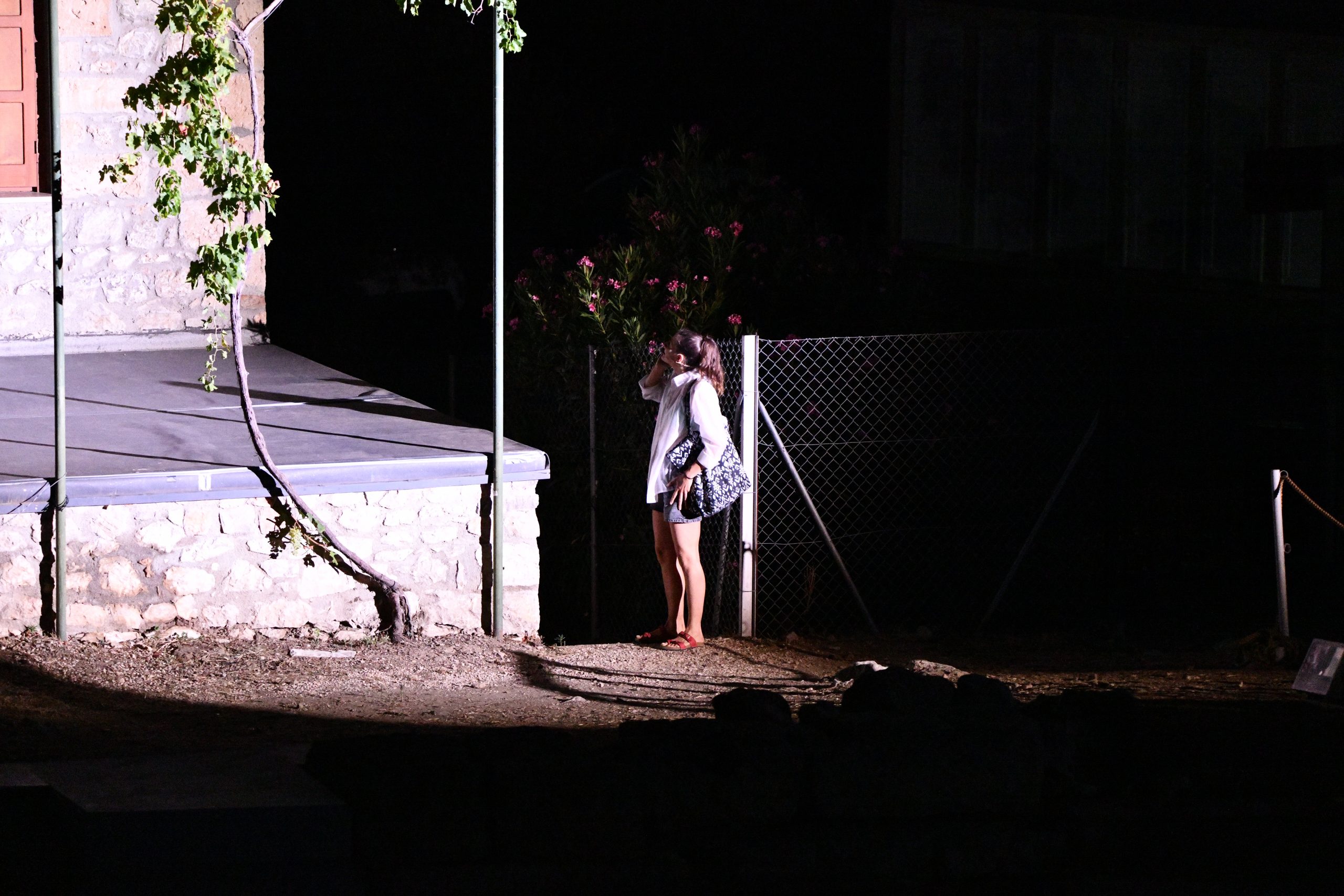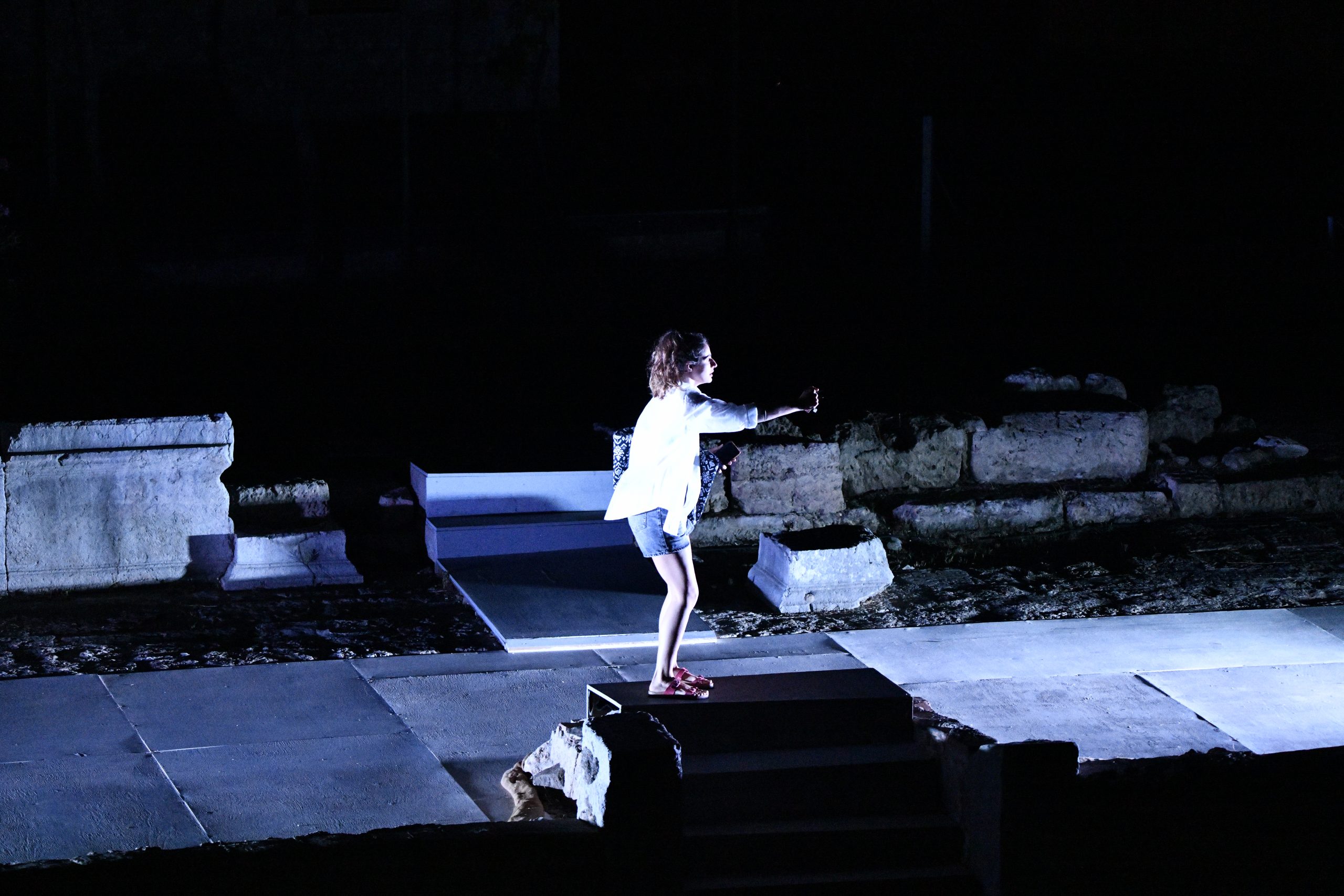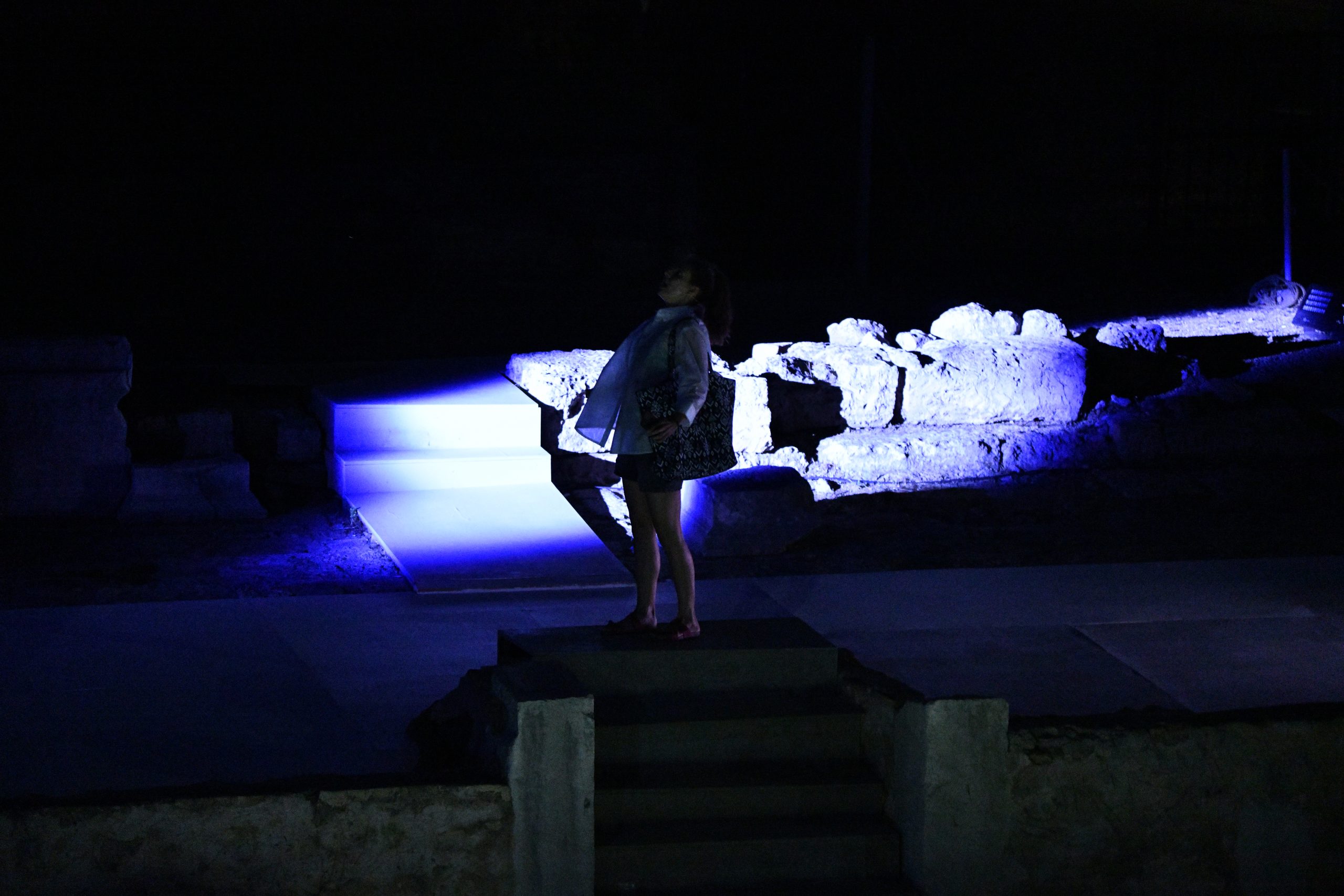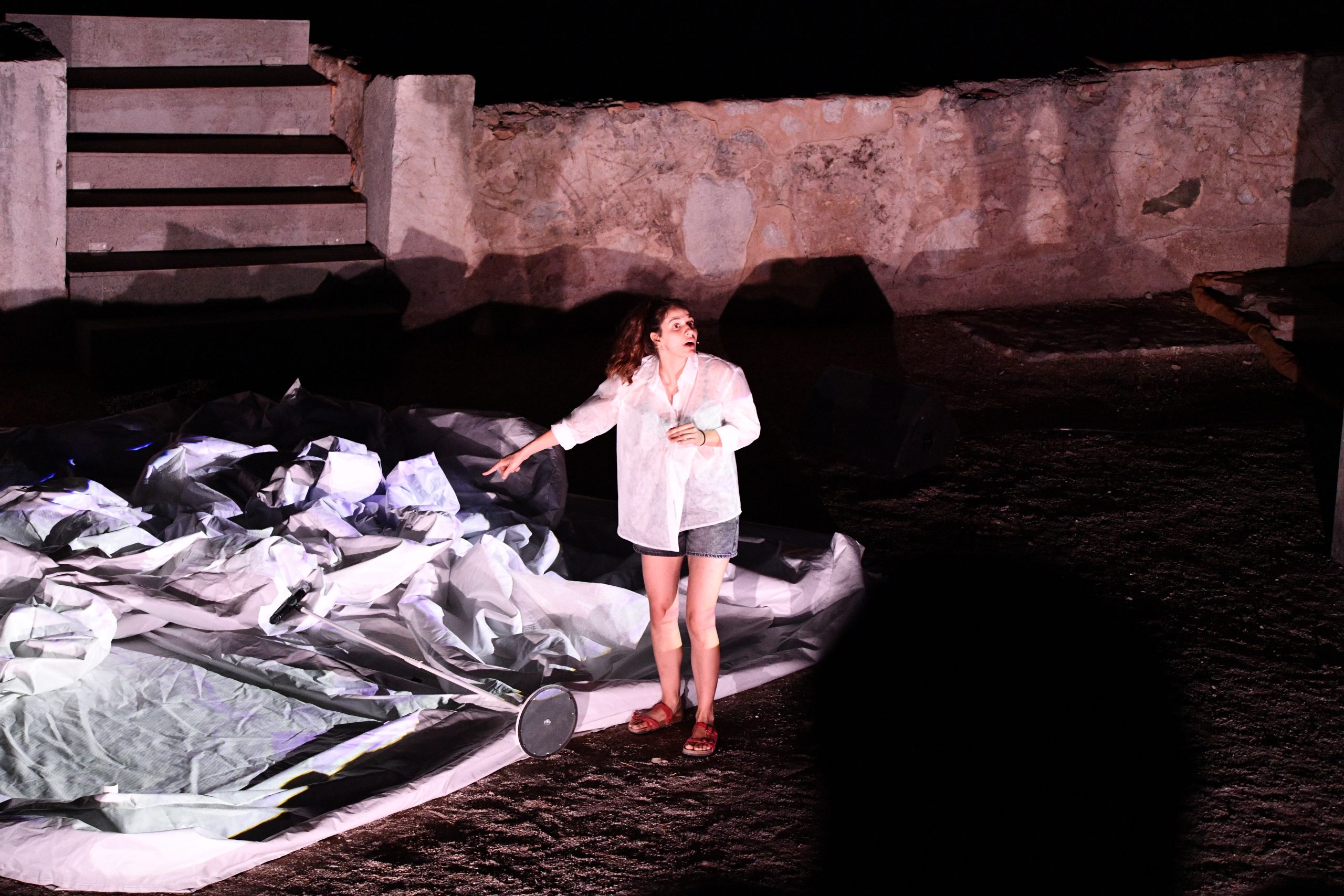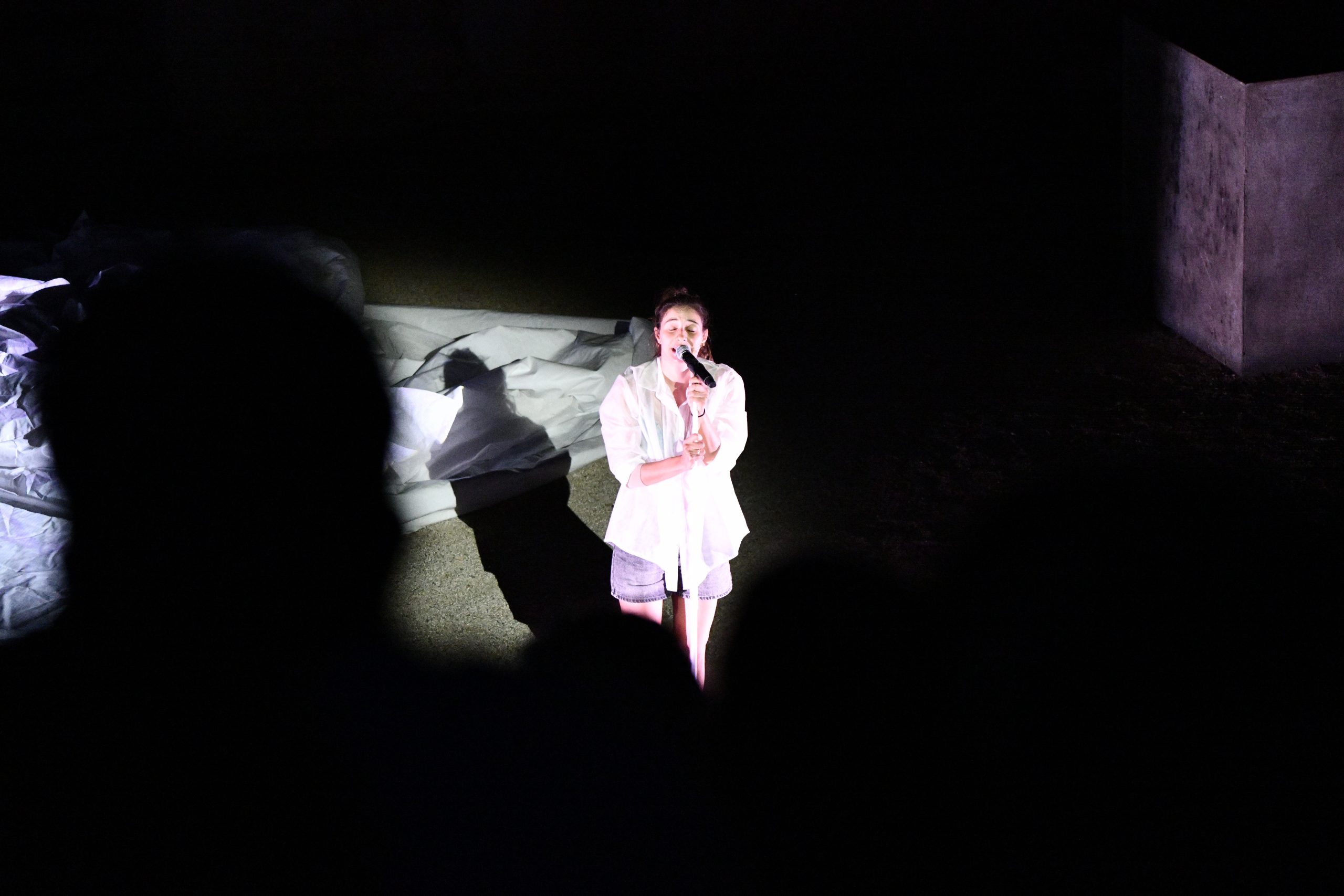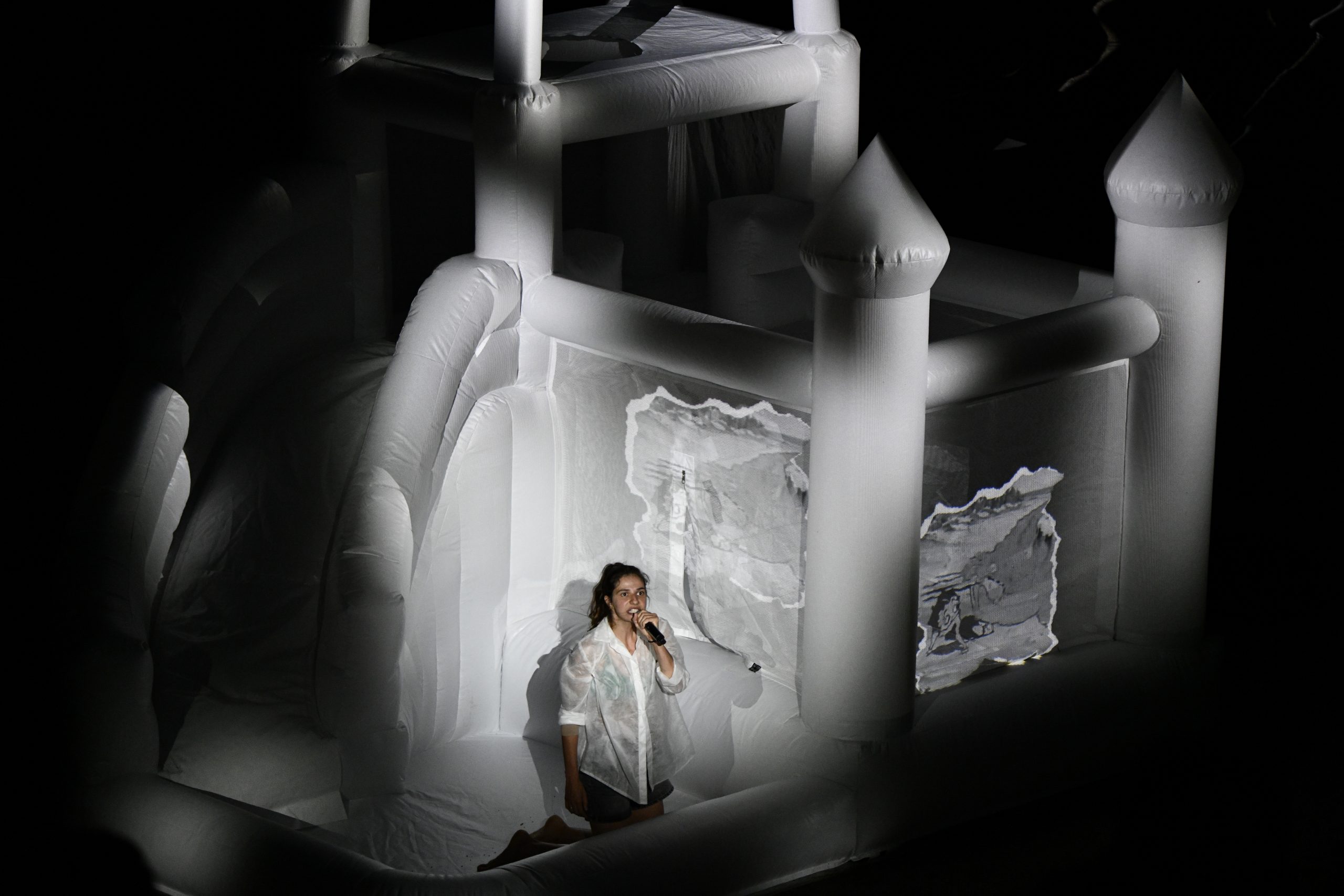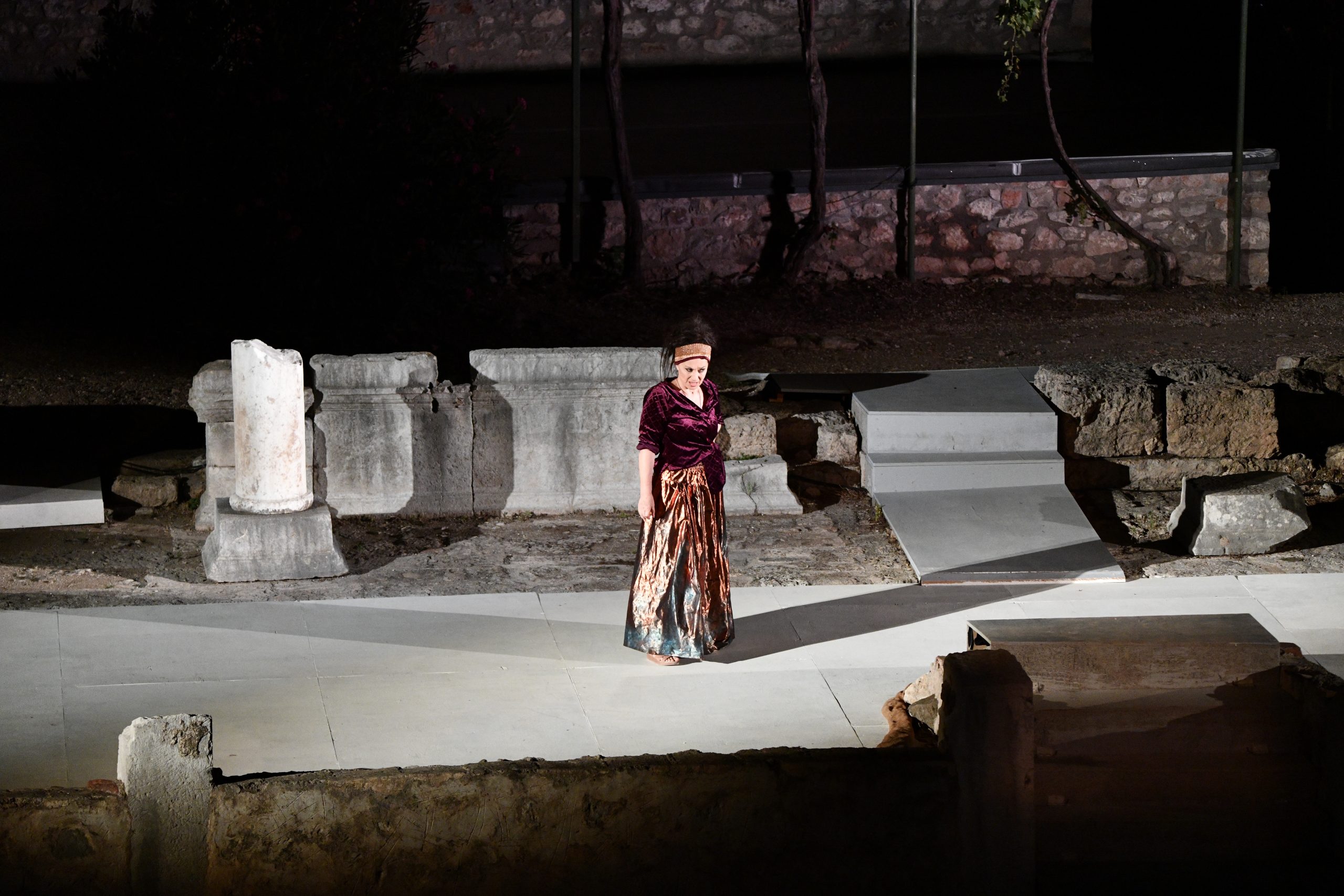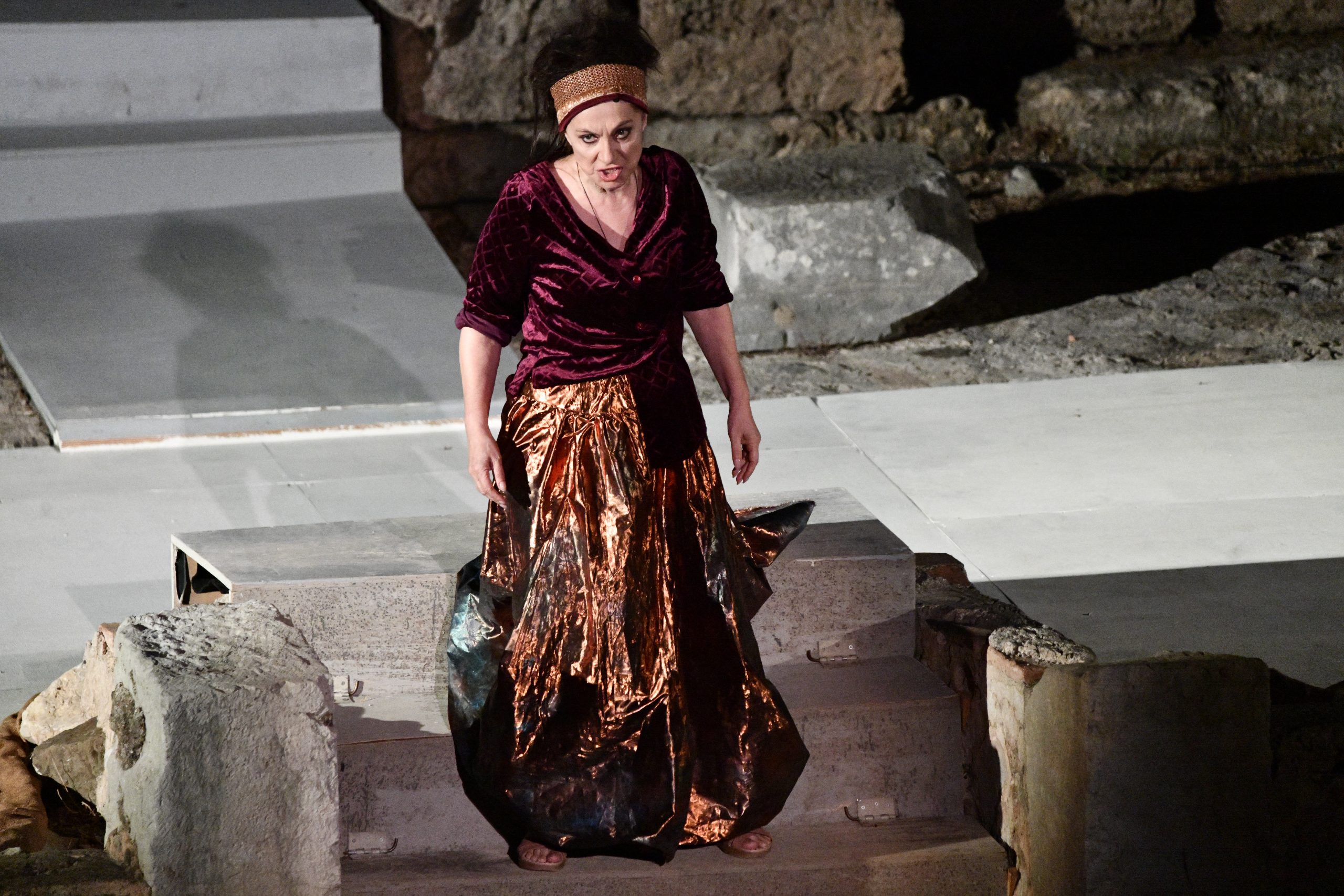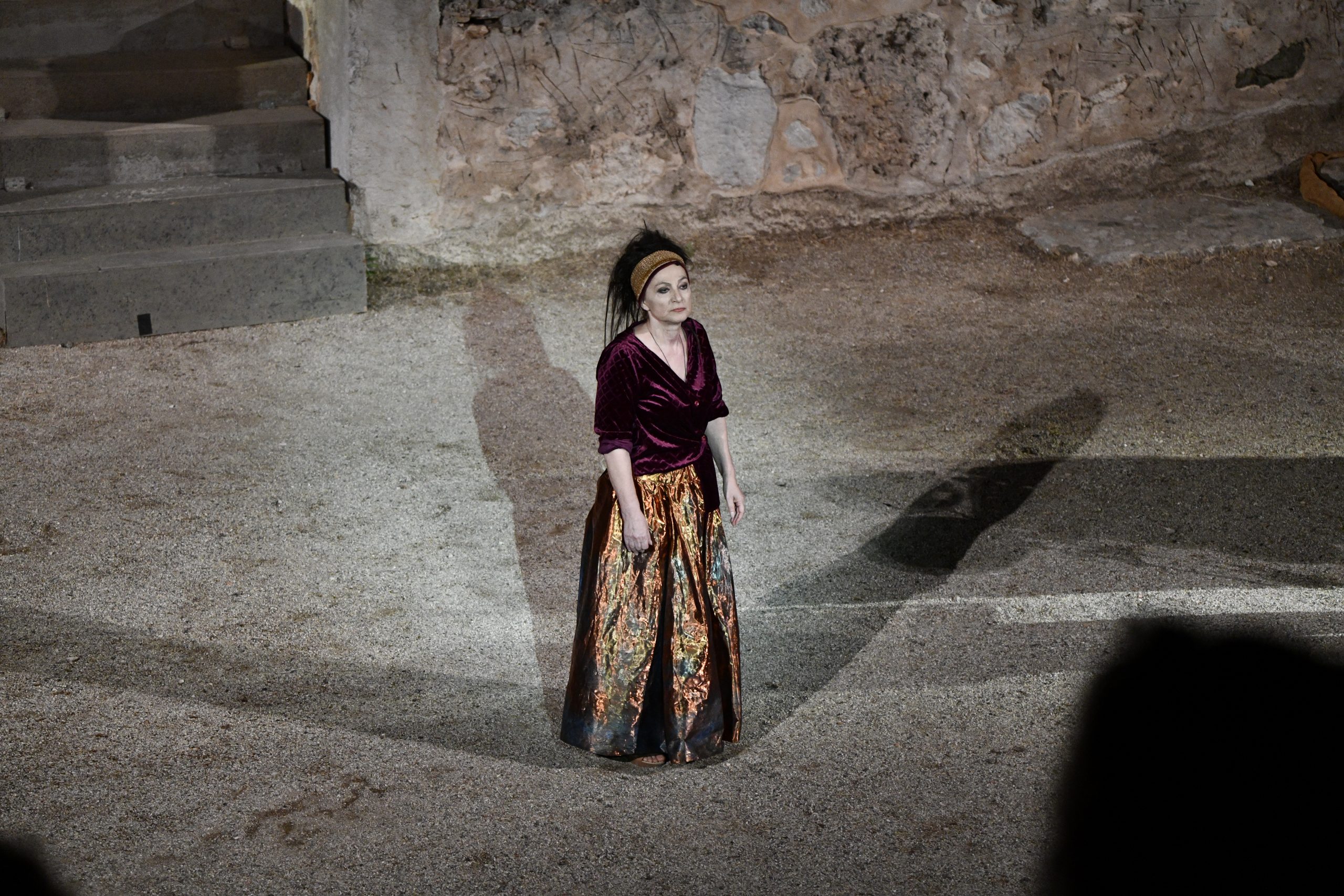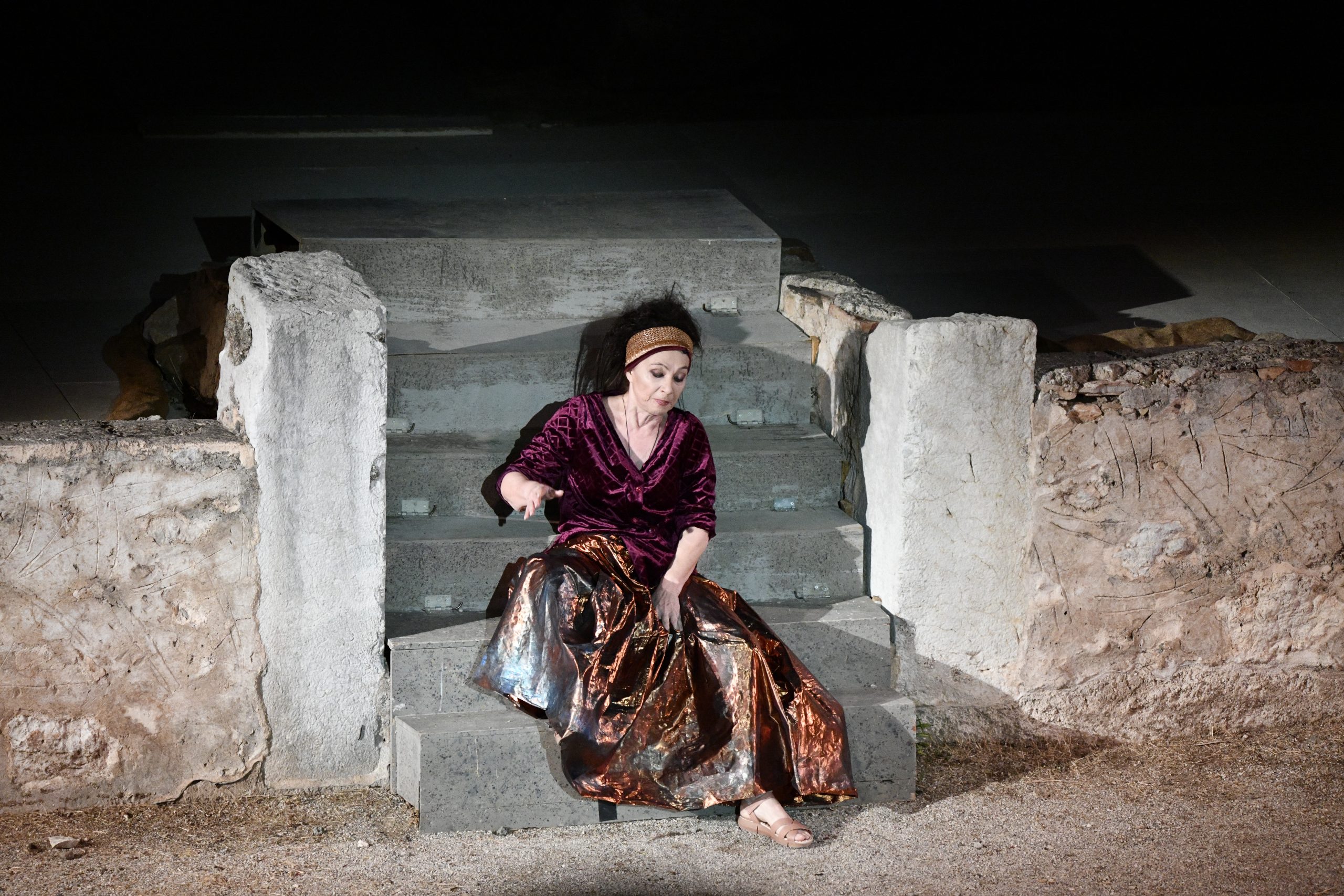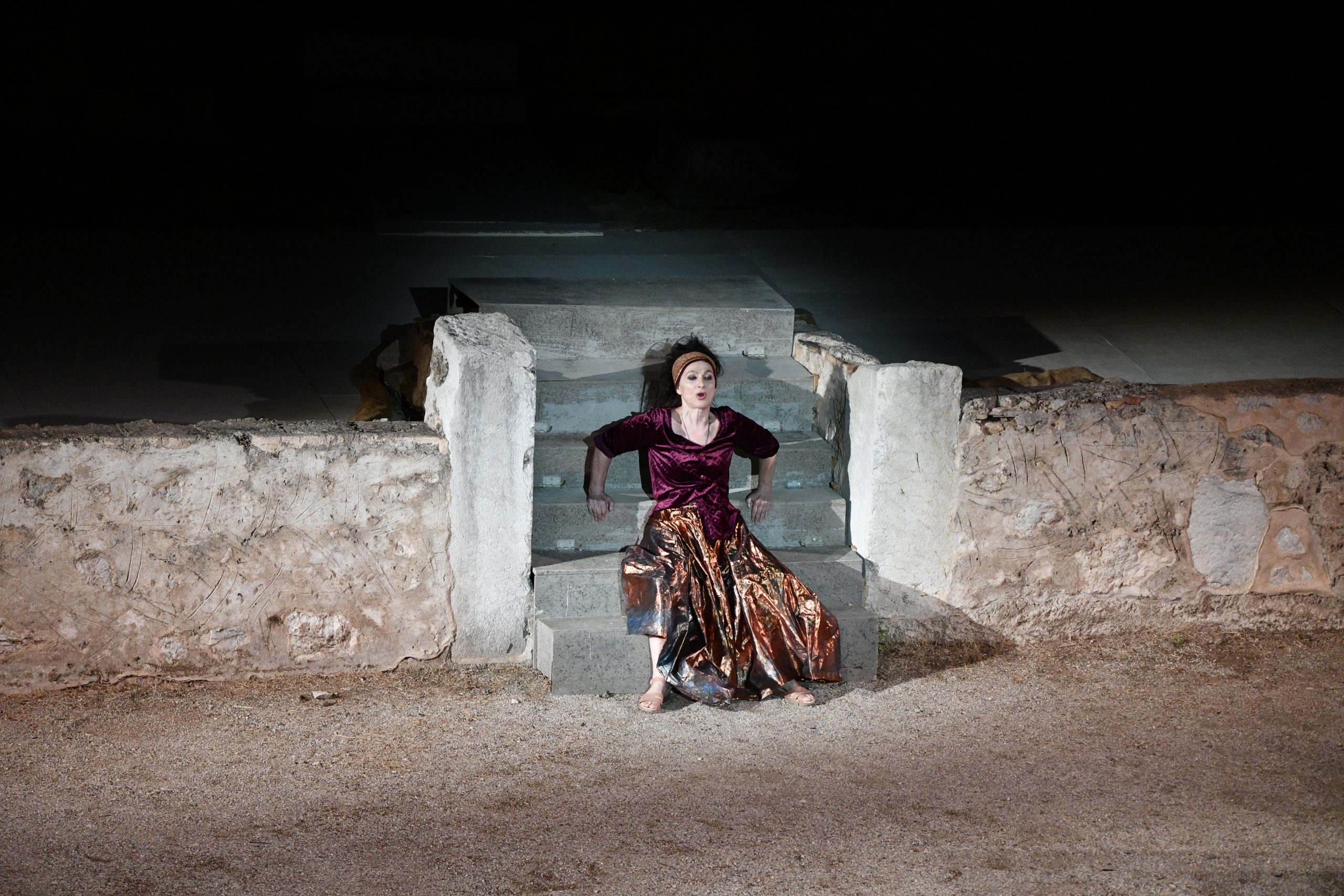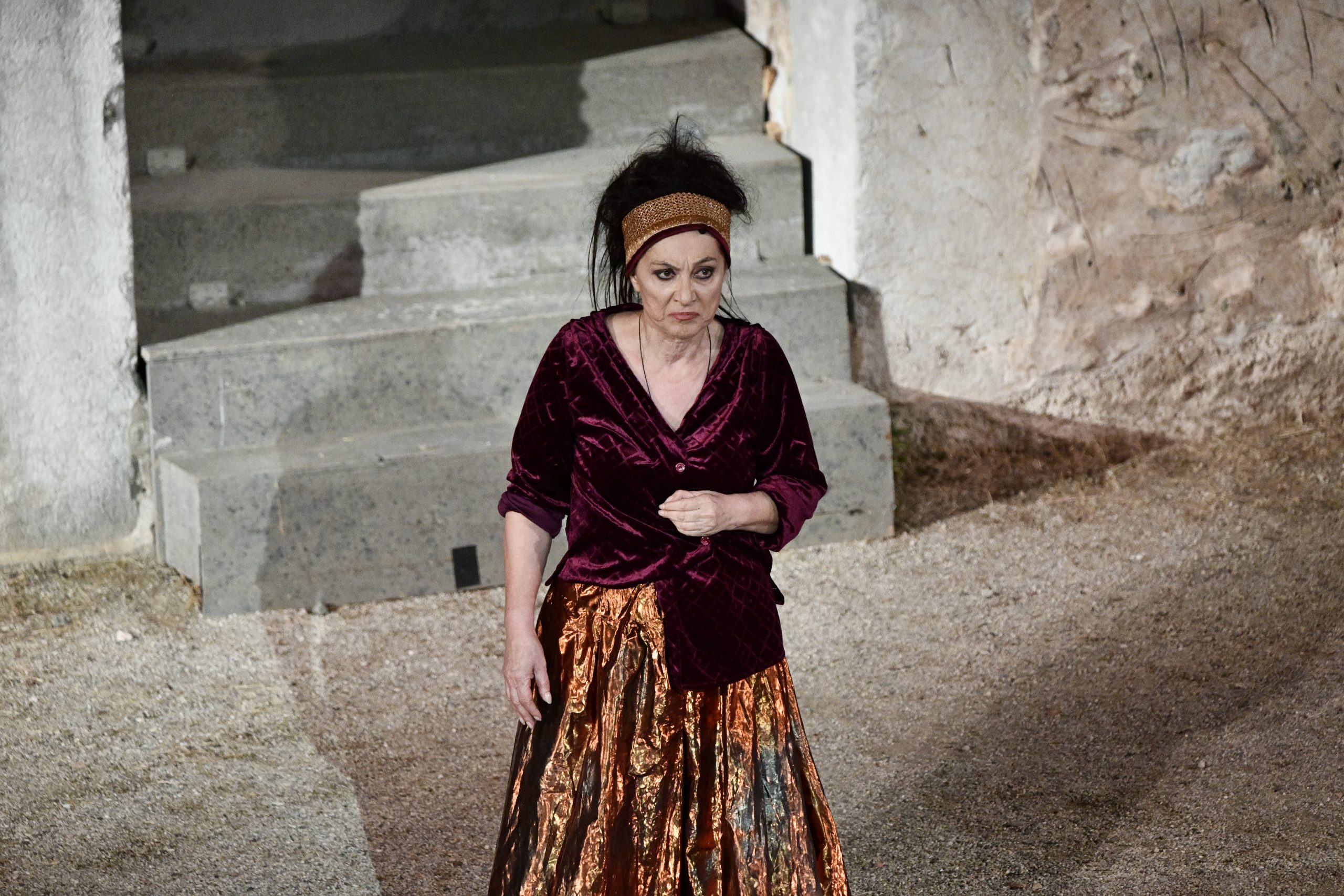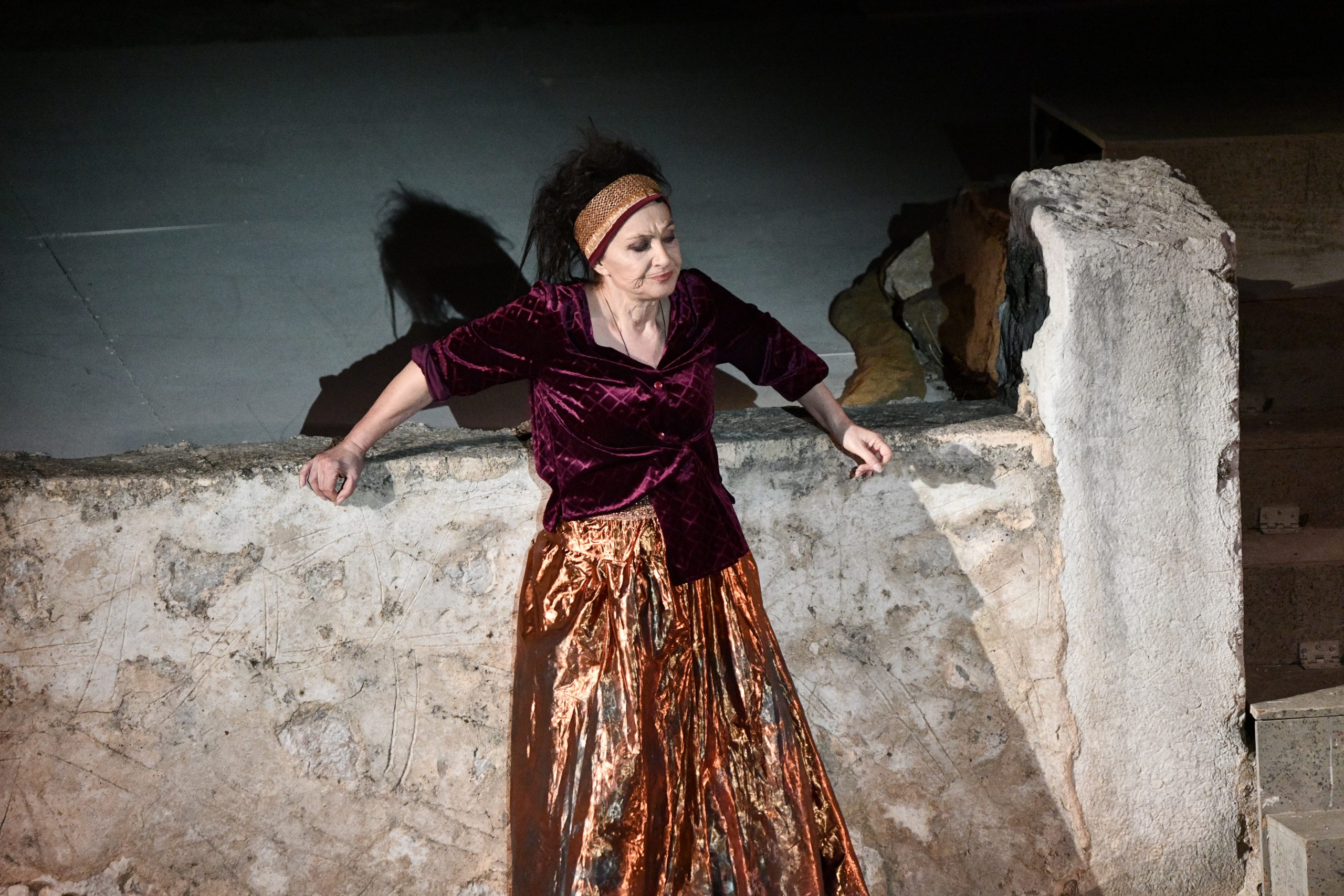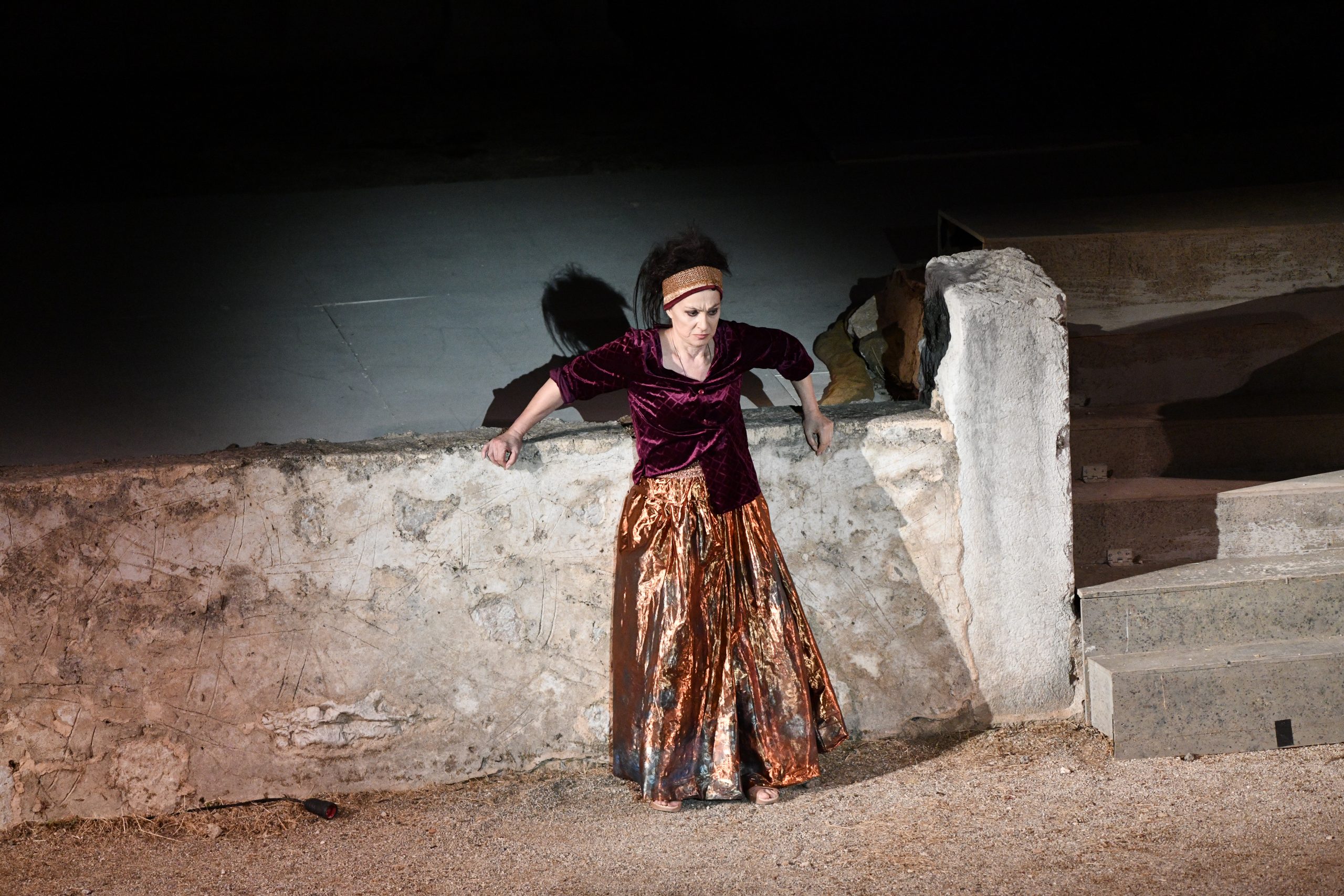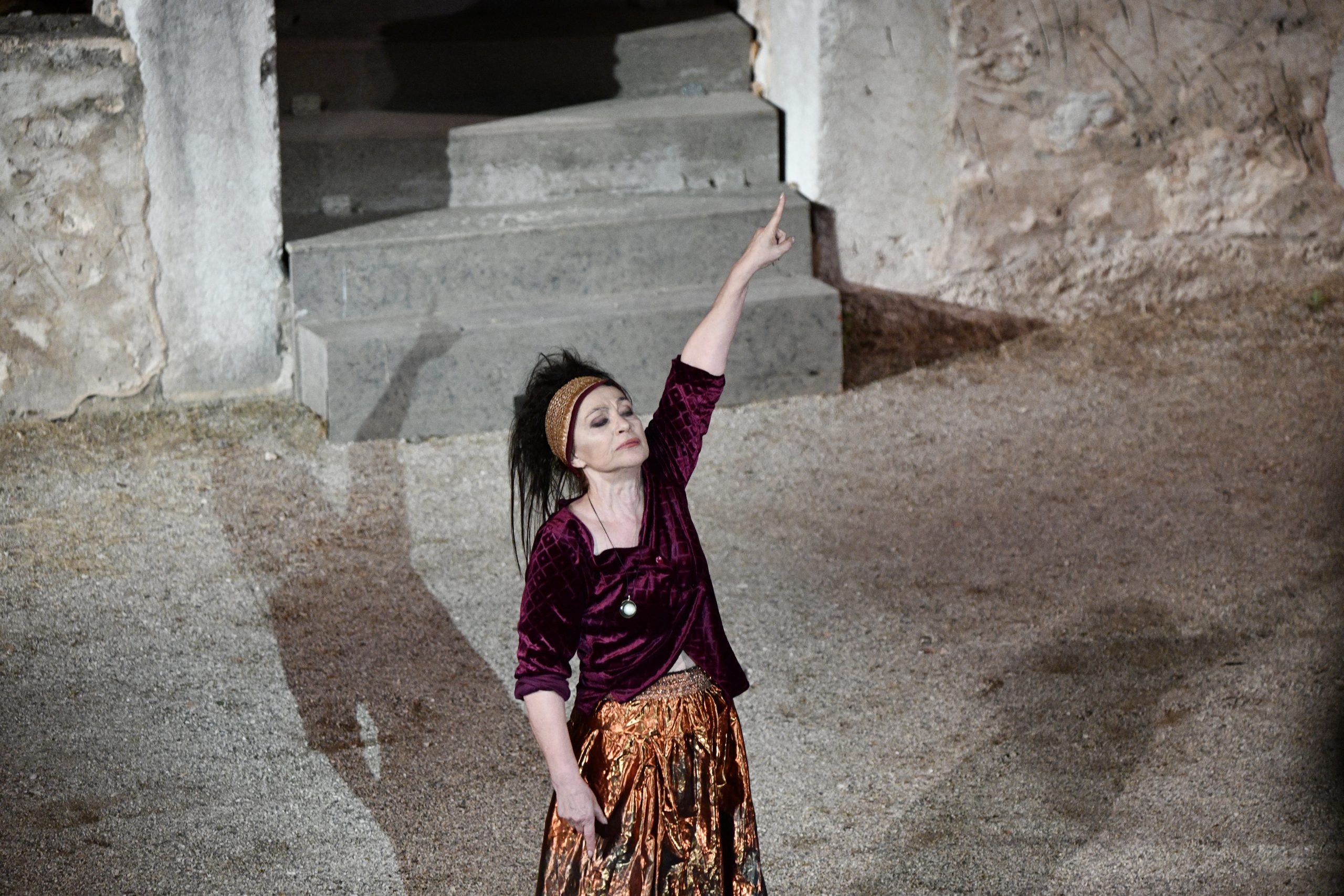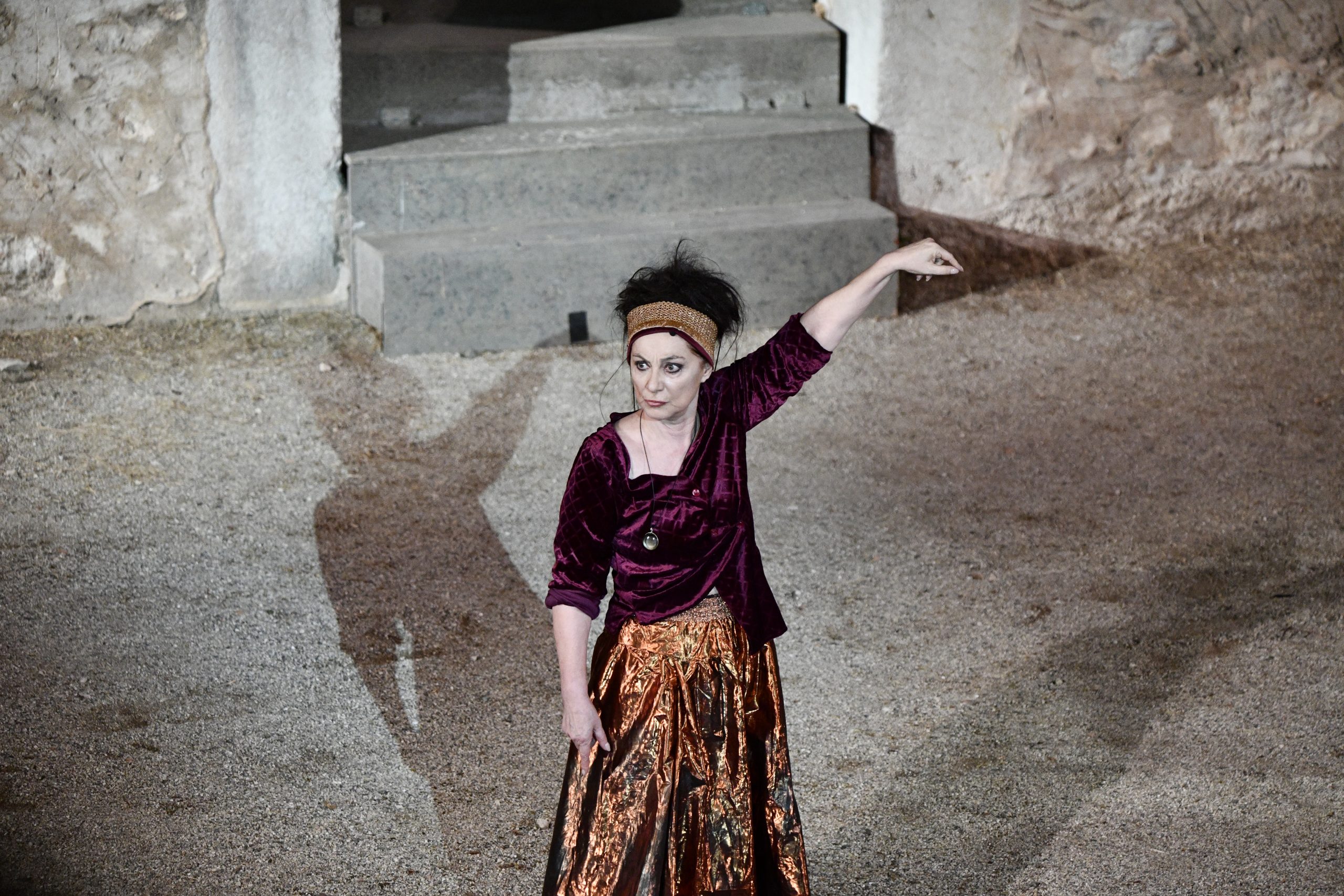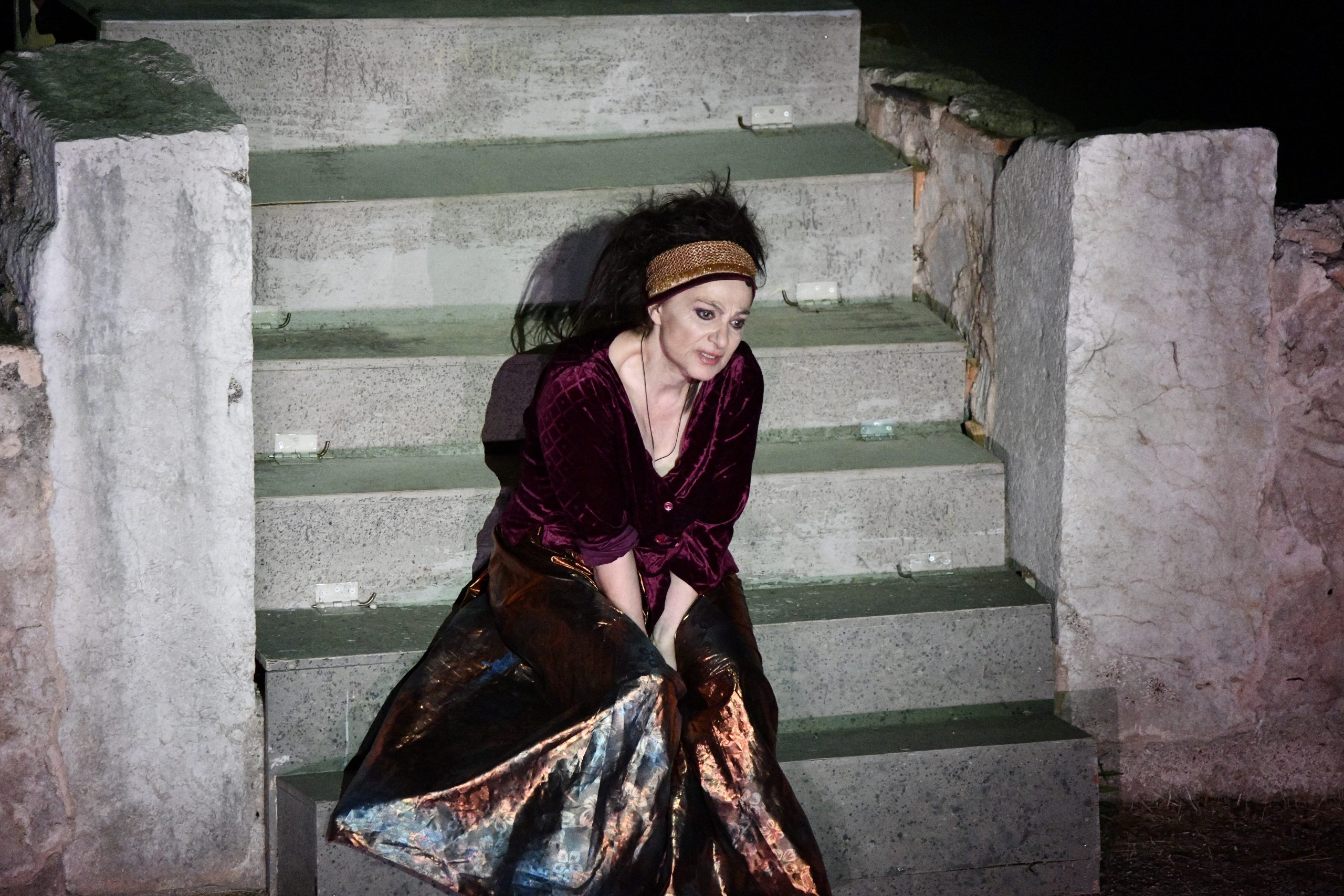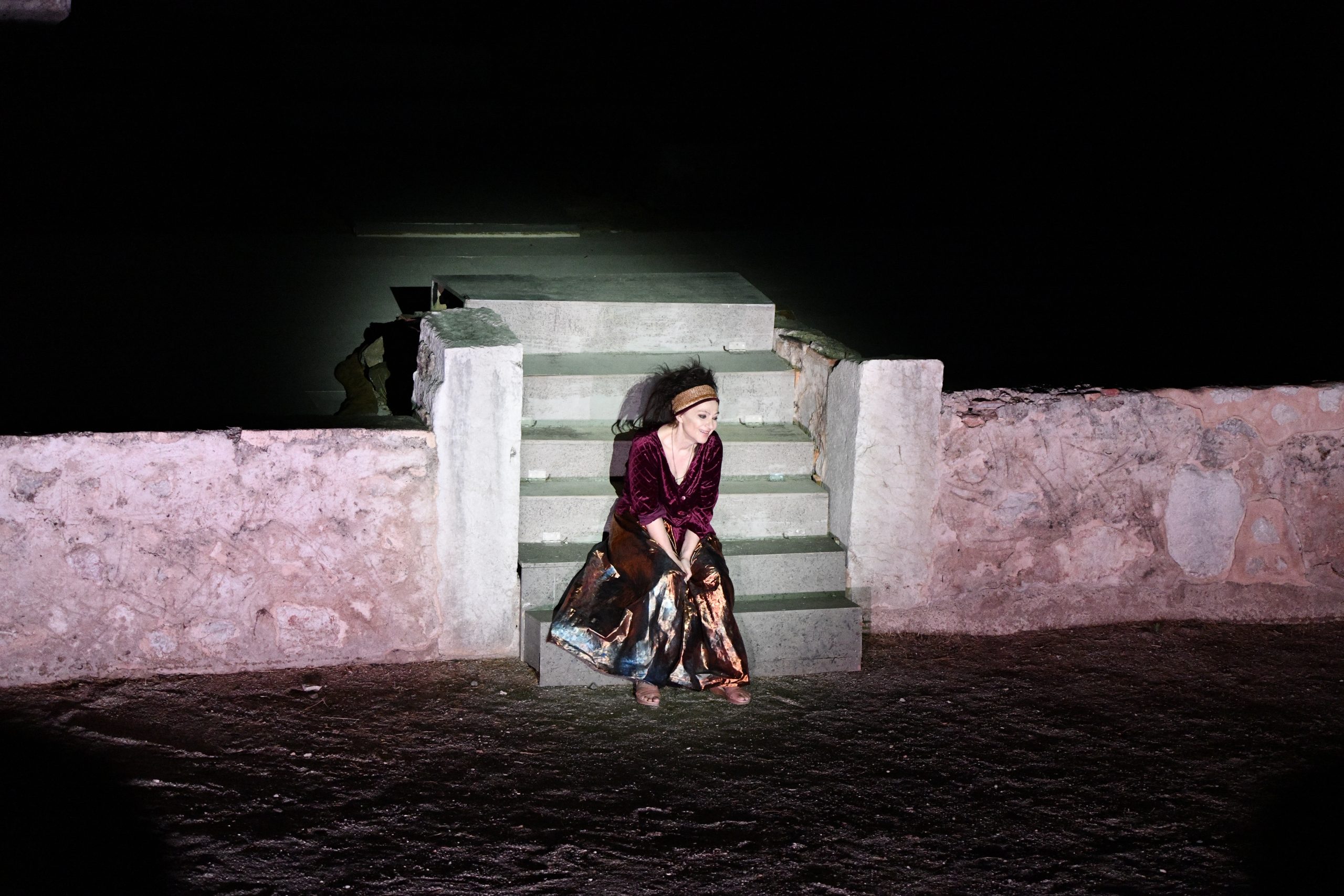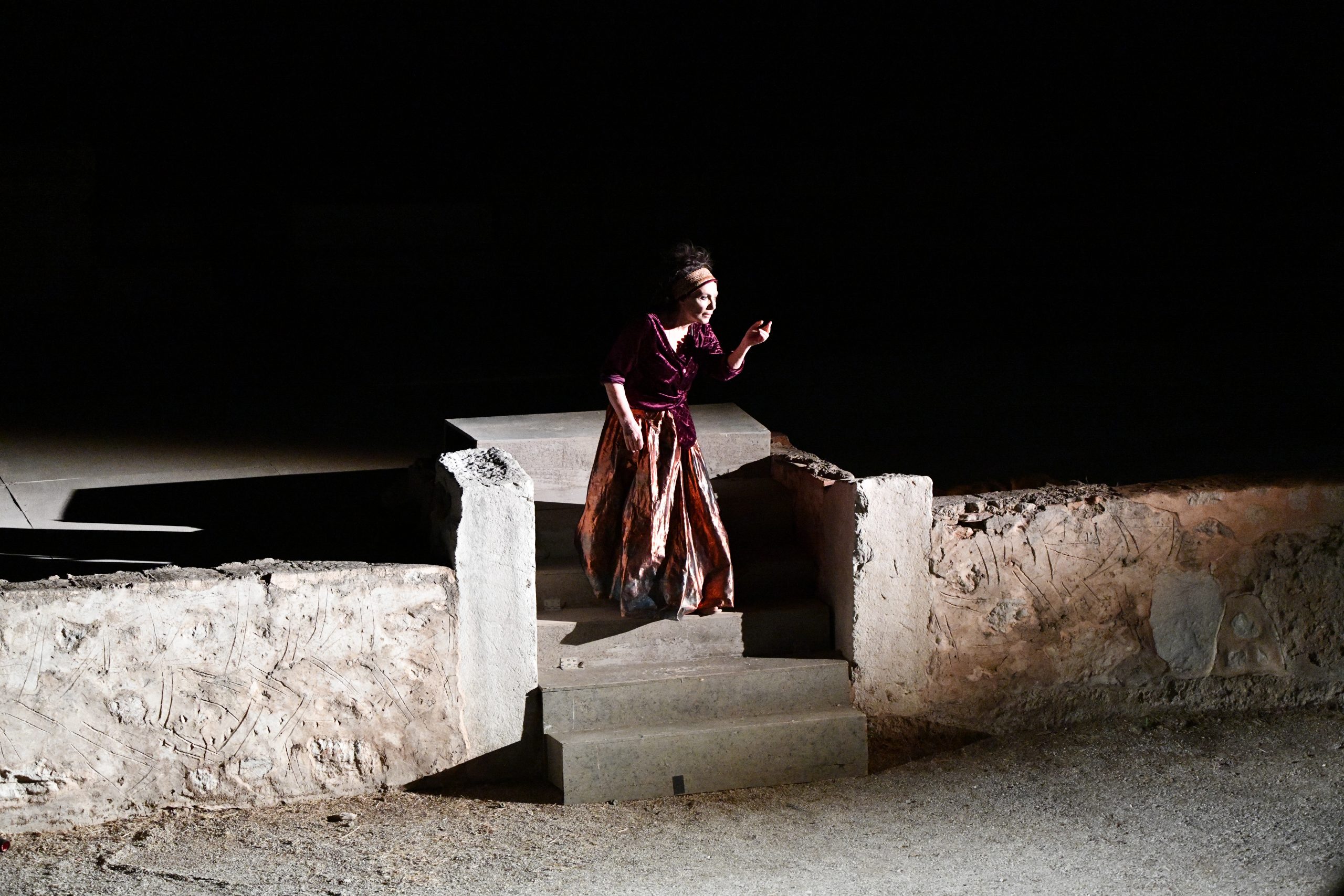Ekaterini Papageorgiou - Nikos Hatzopoulos
Iphigenia / Prey – Me, Her Servant
By Vivian Stergiou - Vangelis Hatziyannidis
As part of its successful Contemporary Ancients Cycle, this year, the Festival commissions the writing of two theatrical monologues inspired by Euripides’ tragedies to Vangelis Hatziyannidis and Vivian Stergiou. Distinguished both in the field of theatre and prose writing, they deliver works that are both exhilarating and taunting, conversing creatively with the Festival’s major productions at the Ancient Theatre of Epidaurus (Iphigenia in Aulis, Not Hecuba) and subverting the perspective of the tragic heroines with grace and humour. This modular stage production is directed by Nikos Hatzopoulos and Ekaterini Papageorgiou. The roles are performed by Filareti Komninou (Me, Her Servant) and Eliza Skolidi (Iphigenia / Prey).
The theatrical monologues by Vangelis Hatziyannidis and Vivian Stergiou are published in bilingual editions as part of the Athens Epidaurus Festival theatre book series in collaboration with Nefeli Publishing.
Iphigenia / Prey by Vivian Stergiou
Author of the short story collections Liquid Blue (Menis Koumandareas Prize) and Skin, published by Polis Editions and adapted for the National Theatre of Greece’s Experimental Stage and the Onassis Foundation (Heatwave, 2024), Vivian Stergiou is inspired by Euripides’ Iphigenia.
Director’s note
‘Iphigenia walks around Epidaurus, sends recorded messages to her mum, meditates on the beach. She takes care of her skin, goes to her altar. Before the altar swallows her, she shares her oracle A femicidal ‘apposition’ of commandments.
Love hurts; if you want to be loved you will have to endure it.
Iphigenia consents, but before she leaves, she throws a tantrum. All the time silenced, listening to the oracle resonating inside her head. It was time for her to say something, too, to tell her side of the story. And as she speaks, the oracle spreads all over around her relentlessly –a voice, both disturbing and familiar, a deadly poison. Other women will enter the pit too, but what can you do?
The monologue is inspired by Euripides’ Iphigenia in Aulis, centring on the moment right before Iphigenia’s sacrifice, when she accepts her fate. Since it’s Greece’s will and the girl is an obstacle, let her be slaughtered like an animal so the ships sail. It’s ok if I die, but first I shall be heard, she says, spitting out the words –her only weapon. And as long as she soliloquises, she exists in the here and now. Once she stops, she’s dead, in every sense of the way, in any realm. Everywhere and always, the oracle triumphs. Her sacrifice is comic, hardly tragic. She digs her own pit and enters it. Sacrificed for nothing, meat to be eaten.’
Me, Her Servant by Vangelis Hatziyannidis
A beloved author of the contemporary Greek theatre with important works to his credit (Disguise, Mud, La poupée, Wind, Screen Light, Your Intangible Self, Cake, Butterfly in Well, In Heaven), having just been awarded the State Prize for Short Story/Novella 2023, Vangelis Hatziyannidis writes a comic monologue based on Hecuba, starring not the Queen of Troy herself, but a trusted servant of hers. This anonymous Trojan has witnessed all the misfortunes of both Hecuba and her homeland, which now, after the war, is in ashes.
An entertaining and light-hearted text that demystifies the ultimate symbol of grief and despair, Hecuba, through the eyes of a person who lived close to her and perceived things that were never captured in the works of the great poets. The common human gaze, the small human measure, in contrast to the great myth. The path of the tragic Hecuba through an oblique, unexpected perspective.
Little Theatre of Ancient Epidaurus
- 05/07 until 06/07/2024 at 21:30
all events
Opera | Theatre | Dance | Contemporary Ancients | Premiere | Greek Debut


